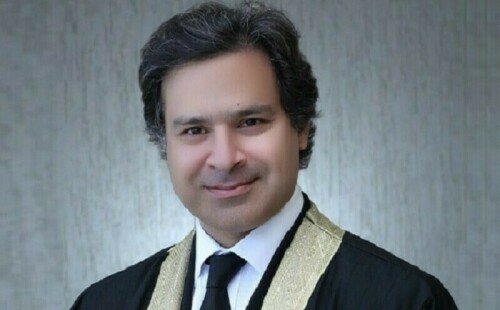KUALA LUMPUR, March 19: Pakistan has made significant progress towards democratic rule, clearing the way for its possible return to the Commonwealth, secretary general Don McKinnon said in an AFP interview here on Friday.
Nine foreign ministers representing countries in the Commonwealth Ministerial Action Group were likely to look "positively" at Pakistan's readmission to the 54-nation grouping of former British colonies when they meet in London in late April.
Mr McKinnon said the sale of nuclear secrets to Iran, Libya and North Korea by Pakistan's top nuclear weapons scientist Abdul Qadeer Khan was unlikely to be a key issue in deliberations over its readmission.
"The Commonwealth measures Pakistan's democratic credentials. We don't have a device to measure Pakistan's geostrategic position, we don't have a device to measure Pakistan's stance on nuclear issues.
"Our concern is: is Pakistan doing all it can to develop a contemporary democratic state," said Mr McKinnon, who is in Malaysia for a meeting of Commonwealth tourism ministers.
Pakistan was suspended from the body after then army chief Pervez Musharraf took power in a military coup in 1999. Mr McKinnon said now President Musharraf had taken significant steps to rebuild democratic institutions, including the holding of parliamentary elections in 2002 and the appointment of a prime minister.
"Many of the hurdles they have crossed," Mr McKinnon said. He expects the April meeting of the foreign ministers of India, Malta, Canada, Sri Lanka, Tanzania, Nigeria, Lesotho, Samoa and the Bahamas in London to look at Pakistan more favourably.
Hosts Britain said in January they would also back the lifting of Pakistan's suspension. Prime Minister Tony Blair's foreign policy adviser, Sir Nigel Sheinwald, had assured Pakistan of the British government's "full support".
"When the nine foreign ministers meet on this issue, I expect them to look at it very positively. We see a lot of positive things that happen in Pakistan and the ministers will be addressing this issue at the end of April," McKinnon said.
McKinnon dismissed observations by analysts that the Commonwealth was a "toothless" organization, saying its decision to suspend a country like Pakistan was a sign of its strength.
Pakistan's re-entry was important for the Commonwealth but Islamabad would also benefit. "Pakistan is a contemporary country. The purpose of rejoining the Commonwealth is to reopen a vast network of contacts that you don't get anywhere else," he said. Mr McKinnon said Pakistan was a large and influential country "so we'd rather see them back in the Commonwealth than on the outside." -AFP














































Dear visitor, the comments section is undergoing an overhaul and will return soon.